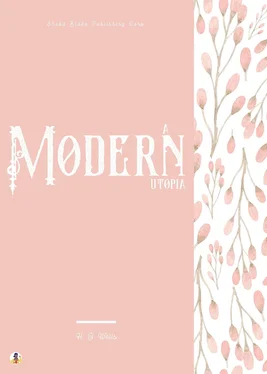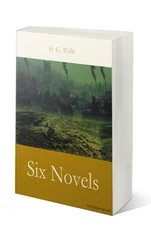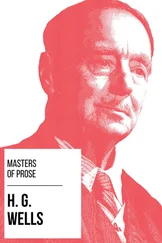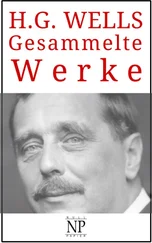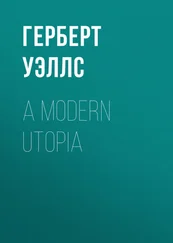All through this Utopian excursion, I must warn you, you shall feel the thrust and disturbance of that insurgent movement. In the reiterated use of “Unique,” you will, as it were, get the gleam of its integument; in the insistence upon individuality, and the individual difference as the significance of life, you will feel the texture of its shaping body. Nothing endures, nothing is precise and certain (except the mind of a pedant), perfection is the mere repudiation of that ineluctable marginal inexactitude which is the mysterious inmost quality of Being. Being, indeed!—there is no being, but a universal becoming of individualities, and Plato turned his back on truth when he turned towards his museum of specific ideals. Heraclitus, that lost and misinterpreted giant, may perhaps be coming to his own….
There is no abiding thing in what we know. We change from weaker to stronger lights, and each more powerful light pierces our hitherto opaque foundations and reveals fresh and different opacities below. We can never foretell which of our seemingly assured fundamentals the next change will not affect. What folly, then, to dream of mapping out our minds in however general terms, of providing for the endless mysteries of the future a terminology and an idiom! We follow the vein, we mine and accumulate our treasure, but who can tell which way the vein may trend? Language is the nourishment of the thought of man, that serves only as it undergoes metabolism, and becomes thought and lives, and in its very living passes away. You scientific people, with your fancy of a terrible exactitude in language, of indestructible foundations built, as that Wordsworthian doggerel on the title-page of Nature says, “for aye,” are marvellously without imagination!
The language of Utopia will no doubt be one and indivisible; all mankind will, in the measure of their individual differences in quality, be brought into the same phase, into a common resonance of thought, but the language they will speak will still be a living tongue, an animated system of imperfections, which every individual man will infinitesimally modify. Through the universal freedom of exchange and movement, the developing change in its general spirit will be a world-wide change; that is the quality of its universality. I fancy it will be a coalesced language, a synthesis of many. Such a language as English is a coalesced language; it is a coalescence of Anglo-Saxon and Norman French and Scholar’s Latin, welded into one speech more ample and more powerful and beautiful than either. The Utopian tongue might well present a more spacious coalescence, and hold in the frame of such an uninflected or slightly inflected idiom as English already presents, a profuse vocabulary into which have been cast a dozen once separate tongues, superposed and then welded together through bilingual and trilingual compromises. [Footnote: Vide an excellent article, La Langue Francaise en l’an 2003, par Leon Bollack, in La Revue, 15 Juillet, 1903.] In the past ingenious men have speculated on the inquiry, “Which language will survive?” The question was badly put. I think now that this wedding and survival of several in a common offspring is a far more probable thing.
* * *
This talk of languages, however, is a digression. We were on our way along the faint path that runs round the rim of the Lake of Lucendro, and we were just upon the point of coming upon our first Utopian man. He was, I said, no Swiss. Yet he would have been a Swiss on mother Earth, and here he would have the same face, with some difference, maybe, in the expression; the same physique, though a little better developed, perhaps—the same complexion. He would have different habits, different traditions, different knowledge, different ideas, different clothing, and different appliances, but, except for all that, he would be the same man. We very distinctly provided at the outset that the modern Utopia must have people inherently the same as those in the world.
There is more, perhaps, in that than appears at the first suggestion.
That proposition gives one characteristic difference between a modern Utopia and almost all its predecessors. It is to be a world Utopia, we have agreed, no less; and so we must needs face the fact that we are to have differences of race. Even the lower class of Plato’s Republic was not specifically of different race. But this is a Utopia as wide as Christian charity, and white and black, brown, red and yellow, all tints of skin, all types of body and character, will be there. How we are to adjust their differences is a master question, and the matter is not even to be opened in this chapter. It will need a whole chapter even to glance at its issues. But here we underline that stipulation; every race of this planet earth is to be found in the strictest parallelism there, in numbers the same—only, as I say, with an entirely different set of traditions, ideals, ideas, and purposes, and so moving under those different skies to an altogether different destiny.
There follows a curious development of this to anyone clearly impressed by the uniqueness and the unique significance of individualities. Races are no hard and fast things, no crowd of identically similar persons, but massed sub-races, and tribes and families, each after its kind unique, and these again are clusterings of still smaller uniques and so down to each several person. So that our first convention works out to this, that not only is every earthly mountain, river, plant, and beast in that parallel planet beyond Sirius also, but every man, woman, and child alive has a Utopian parallel. From now onward, of course, the fates of these two planets will diverge, men will die here whom wisdom will save there, and perhaps conversely here we shall save men; children will be born to them and not to us, to us and not to them, but this, this moment of reading, is the starting moment, and for the first and last occasion the populations of our planets are abreast.
We must in these days make some such supposition. The alternative is a Utopia of dolls in the likeness of angels—imaginary laws to fit incredible people, an unattractive undertaking.
For example, we must assume there is a man such as I might have been, better informed, better disciplined, better employed, thinner and more active—and I wonder what he is doing!—and you, Sir or Madam, are in duplicate also, and all the men and women that you know and I. I doubt if we shall meet our doubles, or if it would be pleasant for us to do so; but as we come down from these lonely mountains to the roads and houses and living places of the Utopian world-state, we shall certainly find, here and there, faces that will remind us singularly of those who have lived under our eyes.
There are some you never wish to meet again, you say, and some, I gather, you do. “And One——!”
It is strange, but this figure of the botanist will not keep in place. It sprang up between us, dear reader, as a passing illustrative invention. I do not know what put him into my head, and for the moment, it fell in with my humour for a space to foist the man’s personality upon you as yours and call you scientific—that most abusive word. But here he is, indisputably, with me in Utopia, and lapsing from our high speculative theme into halting but intimate confidences. He declares he has not come to Utopia to meet again with his sorrows.
What sorrows?
I protest, even warmly, that neither he nor his sorrows were in my intention.
He is a man, I should think, of thirty-nine, a man whose life has been neither tragedy nor a joyous adventure, a man with one of those faces that have gained interest rather than force or nobility from their commerce with life. He is something refined, with some knowledge, perhaps, of the minor pains and all the civil self-controls; he has read more than he has suffered, and suffered rather than done. He regards me with his blue-grey eye, from which all interest in this Utopia has faded.
Читать дальше
